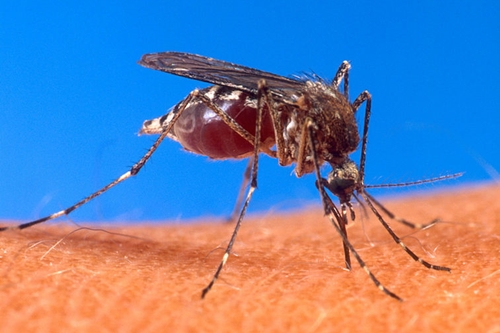26 October 2016. A new industrial lab to produce mosquitoes genetically engineered to prevent the spread of infectious diseases opened in Piracicaba, Brazil. The 5,000 square meter facility, built and operated by Oxitec, in Oxford, U.K., can produce up to 60 million of its engineered mosquitoes a week, which the company says would protect as many as 3 million people from infectious mosquito strains.
Oxitec, a subsidiary of Intrexon Corp. in Gaithersburg, Maryland, developed its genetically-engineered Aedes aegypti mosquito to head off outbreaks of diseases spread by pathogens, notably Zika and dengue viruses, carried by that species of mosquito. The Zika virus is transmitted primarily by aedes aegypti mosquitoes but also by sexual contact, with the current outbreak resulting in increasing numbers of cases of birth defects, notably microcephaly and Guillain-Barré syndrome.
Dengue is viral disease transmitted by infected mosquitoes (not person-to-person) that occurs most frequently in tropical urban regions of the world. World Health Organization estimates as many as 390 million infections occur each year, with half of the world’s population at risk.
Oxitec uses genetic engineering techniques to insert a gene in males of the species that when released into the wild mate with females and produce offspring that die before becoming adults, and thus are prevented from having offspring. As a result the Aedes aegypti mosquito population in the area of the release is markedly reduced or eliminated.
The company conducted extensive field tests of the engineered mosquitoes in Piracicaba, a city in southeastern Brazil. The city’s epidemiological surveillance service issued data that show the incidence of dengue decreased by 91% in the district where the engineered mosquitoes were released over a 1-year period, compared to 52 percent elsewhere in the city. In addition, a survey shows nearly 9 in 10 (88%) of the city’s residents support the use of the engineered mosquitoes.
A field trial of the Oxitec engineered mosquitoes is also proposed for the Florida Keys, where Food and Drug Administration found in August 2016 that the test would not create a significant environmental impact on the region. The local mosquito control board that would oversee the field test is conducting a non-binding referendum seeking the public’s approval for the trial on 8 November, the same day as the general election in the U.S. The referendum asks residents of Key Haven, where the test would be held, and all of Monroe County, Florida, to vote on holding the trial.
Read more:
- Smart Laser Device Tracks, Kills Mosquitoes
- Quick Tests for Mosquito-Borne Viruses Being Developed
- FDA Gives Initial Clearance for Engineered Mosquitoes
- Engineered Mosquitoes Sharply Reduce Dengue Carriers
- Alliance to Build Photonic Mosquito Control Device
* * *


 RSS - Posts
RSS - Posts
[…] Engineered Mosquito Production Facility Opens […]